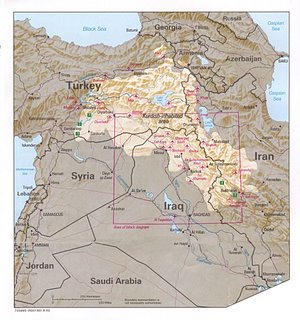Iran's Kurdistan: Resistance, Smuggling And Unfulfilled Dreams

Sixty years after the fall of the Kurdish Republic of Mahabad, the approximately six million Kurds in Iran's northwest region continue to dream of better times despite the cultural and socio-economic repression of successive Iranian regimes in Tehran.
With the advent of the defacto autonomous Kurdish state in neighboring Iraq, the Kurds of Iran increasingly look across the border for a much needed morale boost as well as more concrete forms of assistance.
Smuggling across the border continues unabated through a network of mountain roads despite the recent crack-down by Tehran. While links also exist between the Kurds of Iran and those in Turkey, they're much less solid, especially given the fact that Turkey has flooded its side of the border with thousands of army troops. It's this one way flow of goods from Iraqi Kurdistan that keeps the Kurds in Iran afloat.
Another dimension to this unofficial trade is the flow of weapons to the Kurdish resistance movement in Iran, headed by the PJAK organization. While little is known of PJAK, it's activities have so worried Iran that the Tehran regime allegedly recently tried to persuade the Kurdish regional authority in Iraq to help stamp out the PJAK rebels.
While many Kurds in Iran support the resistance movement, there are just as many for whom getting a decent job is their main priority. Chronic unemployment is so widespread that many young people are lured into illicit avenues of making a living, such as the drug trade.
.1.jpg)

0 Comments:
Post a Comment
<< Home